If you’re a seasoned coffee lover then you’ve probably tried all manner of coffee recipes. Black coffee is a treat on its own but combining this wonderful stuff with milk and sweeteners can produce a different drink entirely. Sugar or liquid syrups are the most common ways people sweeten their coffee but have you ever considered swapping these out for the natural sweetener that is honey?
Honey is a safe and delicious addition to hot or cold coffee and has the added benefits of providing you with some healthy antioxidants, vitamins, and minerals. You can use honey in any kind of coffee you enjoy best but add it gradually as honey has a much stronger flavor when compared to sugar.
Honey has a rich and complex journey to go from nectar to the honeypot and once you understand more about this process you’ll be inspired to try it next time you’re drinking coffee.
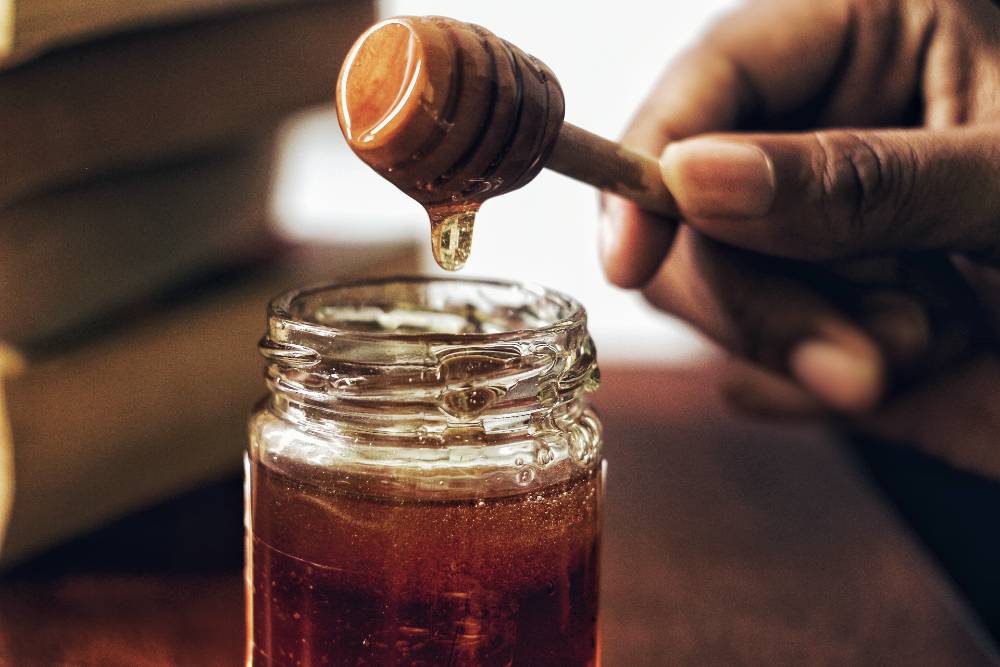
Where Does Honey Come From?
There’s no doubt that honey is a super-sweet, delicious treat but the production of honey is actually a little bit gross when you think about it.
Bees make honey by gathering nectar from flowers and ingesting this to store in a special ‘stomach’. This is mixed with digestive enzymes and the bees regurgitate it when they return to the hive. They pass the regurgitated, sugary liquid from one bee to the next, each one taking its turn to ingest and regurgitate it until the result is honey as we know it.
They store this in their hive, carefully regulating the temperature and humidity so that excess water evaporates and then they seal off the honeycomb with a waxy material. This can be stored without spoiling for a very long time and is ready to be used as a food source for the young bees or for the workers if food becomes scarce.
This process means that honey if stored correctly, will not go off for thousands of years. The acidic environment as well as other factors added by the bees during production means that bacteria and other pathogens don’t grow well in honey.
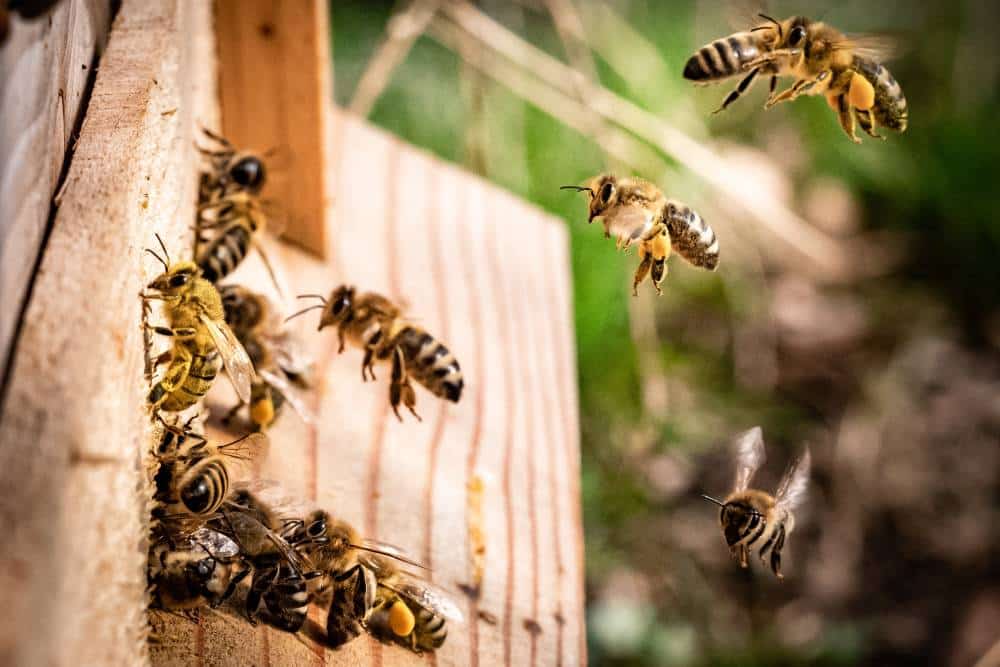
Benefits of Adding Honey to Coffee
Humans have long been enjoying this sweet treat and the most common uses include baking desserts as well as sweetening tea. Honey is said to have a whole host of health benefits which may lead you to consider using it to sweeten your morning cup of coffee. Some of the benefits are quite compelling whereas others simply mean it’s a slight improvement when compared with white sugar.
A teaspoon of honey is denser than a cube of sugar and this results in it packing in a few more calories per serving. 21 calories are found in this amount of honey whereas there are around 16 in white sugar. This difference is so tiny in regards to your daily calorie limit that switching between honey and sugar to aid weight loss is not going to work.
Honey contains essential minerals and vitamins such as calcium, potassium, iron, magnesium, vitamin C, K, and a range of B vitamins. It’s also full of antioxidants and these factors make it a healthier alternative to regular sugar.
The antibacterial properties of honey make it a good natural remedy for a sore throat and another health benefit of honey mean it is sometimes used to aid wound healing. Honey also contains pollen and is said to help alleviate hayfever and allergy symptoms but only if you consume local honey.
The current literature doesn’t support much in the way of medical use of honey just now but, as with most things, there’s room for evidence to emerge in the future. All these potential health benefits of honey have to be considered relative to the small volume of honey you end up consuming so it’s not likely to be a miracle cure for any ailment.
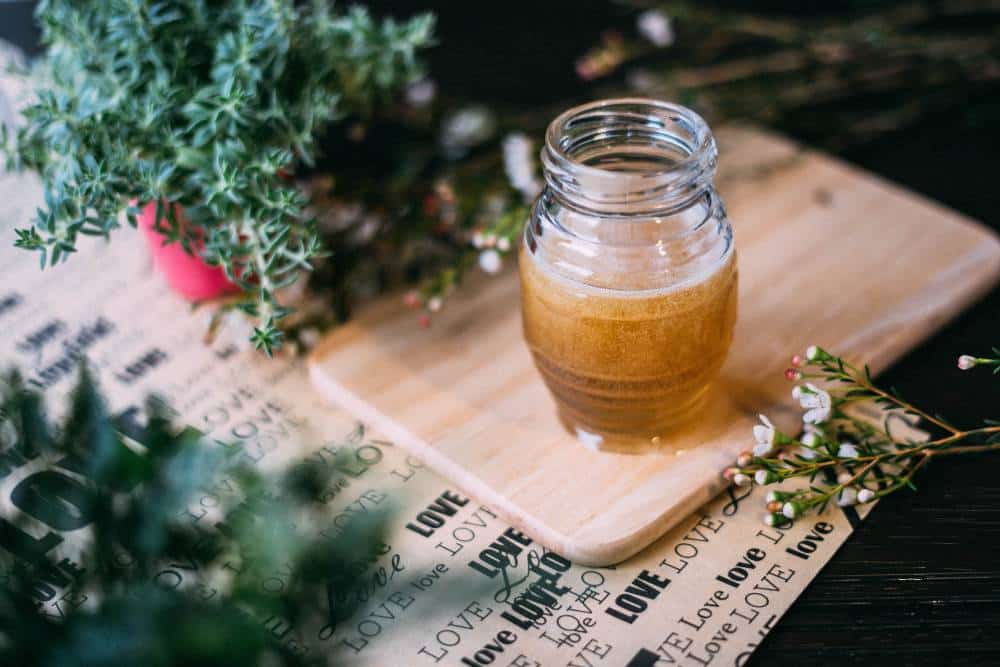
Risks of Honey
Honey is packed full of monosaccharide fructose and glucose and these are sugar molecules in their simplest form. Glucose is the preferred source of fuel, especially for your brain and heart, but also for the rest of your body as well. Fructose is a slower burner and has to pass through your liver first to make it usable. Honey has long been regarded as a valuable source of energy, especially for hunter-gatherer societies in warm climates.
The downside is, over-consumption of fructose is especially linked to fatty liver disease and diabetes but it’s worth noting that all forms of sugar contribute to these diseases if consumed in excess. The sugar content of honey is always an issue if you’re monitoring foods by their glycemic index and watching your blood sugar levels.
Raw honey may pose some health risks and there’s the potential for a bacterial toxin to be found which can be fatal to infants. For this reason, honey should never be fed to infants (and coffee is not advisable for babies either but for different reasons!).
Honey may also contain pesticides, depending on where it has been produced, and if this is of concern to you then opt for organic honey.
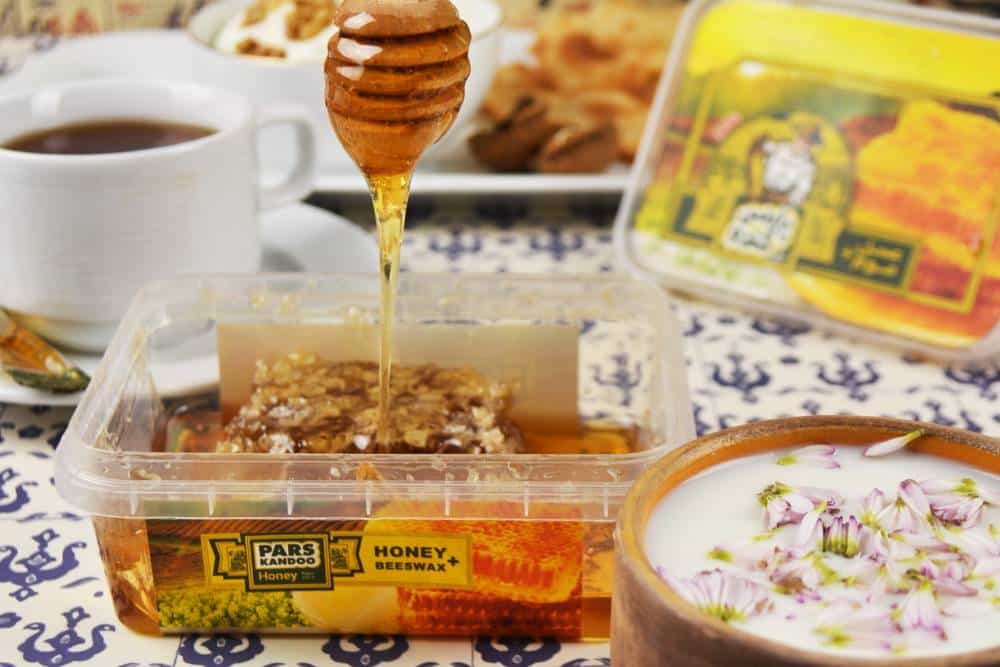
Honey as a Natural Sweetener in Coffee
You can add honey as a natural sweetener to hot coffee such as black coffee and espresso. Honey has a fairly strong flavor so start with less honey than you would use sugar, take a sip and see if more is needed. Always add honey to your coffee when it has been served as the sticky residue can clog up a french press or paper filter and makes it a nightmare to clean.
Honey is fine to add to cold coffee as well like iced coffee or cold brew although it doesn’t dissolve as well as it does in hot liquid.
Honey-Coffee Drinks
Starbucks incorporates honey into their coffee recipes in the form of a Honey Almondmilk Flat White. This combines this delicious latte-like coffee drink with a sweet honey blend. It’s rich, warming, and has a buttery sweetness. You can also get this drink as an iced version. This is a great way to introduce you to the world of honey in your coffee if you’d like to just see how it tastes as a one-off.

Types of Honey
When it comes to choosing a jar of regular honey for your coffee or for any other recipe, the first hurdle is knowing which kind to choose. There are so many different types of honey available so here’s a quick guide to help you out.
Clover Honey – Mild and sweet in taste. Light in color, perfect to add to coffee.
Acacia – This kind of honey tastes very sweet like sugar. It’s light in color and stays liquid longer than most kinds of honey making it perfect to sweeten your morning cup of joe.
Wildflower and Orange Blossom – Both are mild in taste with floral notes. Work well in coffee.
Buckwheat and Manuka – Both are extremely rich in taste and dark in color. Less sweet and maltier in flavor these two varieties are often used for medicinal purposes and are not the best choice for enhancing the coffee taste.
Fireweed – It is less sweet with a sharp, peppery taste. Not the best choice as a sugar replacement.
Alfalfa – Mild sweetness, delicate in taste with hints of vanilla extract. Light floral aroma and is better for baking with than adding to coffee.
Chestnut – Complex flavor notes, less sweet with a bitter aftertaste. Best used in savory dishes, not in coffee.
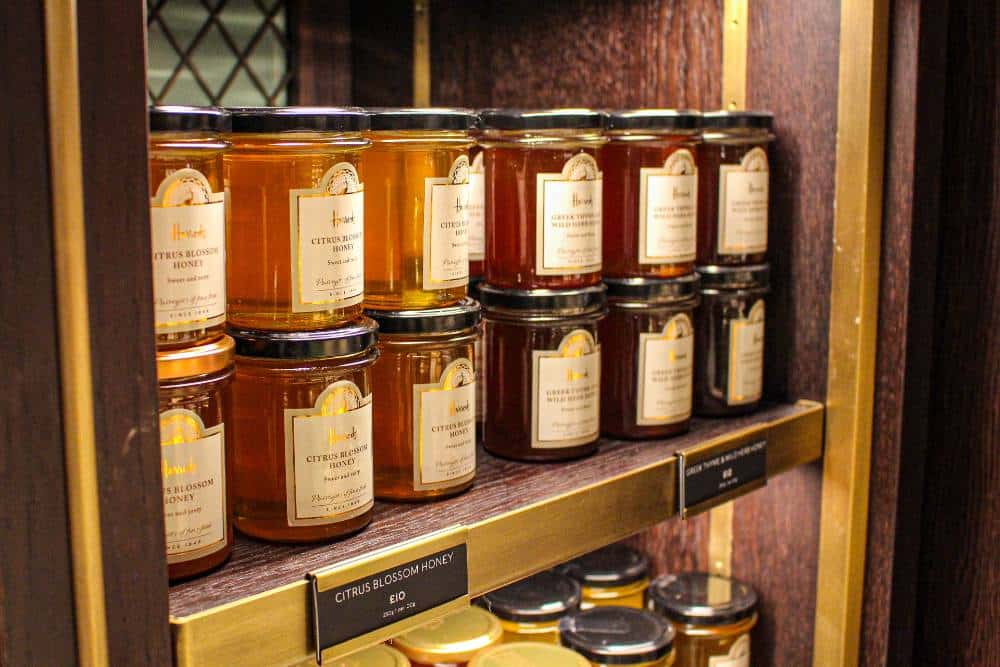
Final Thoughts
Coffee beans and honey could be a match made in heaven for some, although the stronger taste of this sweet elixir is too much for others. If you’re partial to a sprinkle of sugar in your java then why not try swapping this out for a drizzle of honey? It tastes lovely and will give you some health-boosting antioxidants.
Just remember, always choose local honey if possible. It tastes better and helps support small local businesses.





